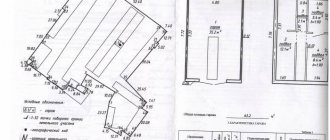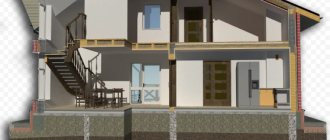General information
Before purchasing a garage, you should take into account all the features of this transaction. For the buyer, the most important thing in this case is that the seller has ownership rights to the property. That is, it must be private property. Of course, buying a garage in a cooperative implies that the owner has the appropriate membership book. But this document does not give the right to a garage.
And if the seller did not have time or was unable to register ownership of the garage, then he will not be able to sell it. In practice, when buying a garage, the future owner turns a blind eye to the lack of title papers. He receives only a GSK membership book in his name, but does not become the owner of the property.
Topic: about contributions to a garage cooperative
Sergey, ask the governor to pay this amount. Maybe your father has a debt on contributions, this is a separate topic. Well, it can’t be that joining the Cheka costs 4 rubles. Read the Charter, it should state how many people pay to join the Cheka.
And the treasurer himself must accept the money and make reports on the financial transactions he has carried out. And then report to the chairman. According to the accounting policy of the organization, GSK does not have the right to keep cash in the cooperative’s cash register of more than the approved limit. This is usually 20-30 thousand rubles, the money must be regularly deposited in the bank. If in doubt, you can periodically (once a quarter) check the cash register with the removal of balances and check with the funds in the current account.
This is interesting: What is the difference between a House and a Property in the Address?
Privatization
For the transaction to be legal, the buyer must demand that the seller privatize the property in the garage cooperative. And he needs to complete the paperwork. To register a garage in GSK in his name, the seller must submit the following papers:
- passport,
- a certificate stating that the share has been repaid in full,
- cadastral passport,
- certificate of payment of state duty.
Ownership rights are registered in Rosreestr. After receiving the relevant document, the parties can enter into a deal. It’s another matter if not a single garage in this cooperative has been privatized. Then the question arises about what additional documents may be required.
From physical the registration authority will request:
- Charter of the cooperative,
- extract from the tax office,
- decision on choosing a chairman,
- building permit,
- permission to use land,
- documents certifying the commissioning of these facilities.
After submitting all the necessary papers and receiving a certificate of ownership, the garage will be ready for sale.
Procedure for registration of membership in the cooperative
Citizens joining the GSK are accepted as members by the GSK Board on the basis of a personal application. The application must be accompanied by documents confirming the applicant’s right to a garage box or land plot within the boundaries of the GSK territory.
For organizational expenses for preparing documentation, the applicant pays an entrance fee in the amount established by the general meeting of the State Joint Committee. The heirs of a deceased member of the GSK are exempt from paying the entrance fee.
For the period from the date of taking possession of the garage box to the day of admission to the GSK members, the applicant is obliged to pay membership and target fees in the same amounts and within the same time frames as the members of the GSK. If the previous owner of the garage box had a debt to GSK, the applicant should ensure its repayment.
The Board is obliged to issue a membership book to each member of the GSK within three months from the date of his admission as a member of the GSK. The membership book contains the personal data of the GSK member, the date of admission to the GSK membership, information about the garage box, as well as information about the entrance, membership, target fees paid by the GSK member, data on payment for consumed electricity and other necessary data.
Documents required for registration of membership in the GSK
and receiving a membership book:
1. Photocopy of the garage owner’s passport.
2. Application from the garage owner to become a member of the GSK.
3. Photocopy of the passport of the former owner of the garage (upon sale).
4. Application from the former garage owner to resign from the GSK membership.
5. A photocopy of a document confirming the ownership of the garage.
6. Receipts for payment of membership fees.
7. Receipts for payment of targeted contributions.
8. Receipt for payment of consumed electricity.
Dear members of the cooperative and owners of garage boxes, for your convenience and in order to save our time during the reception, below we have placed for you samples of the necessary applications, which you can write by hand or download and fill out by inserting your data.
Do not forget to attach the necessary documents to your applications.
Please fill out applications with a pen with blue ink, date and sign during your appointment at the GSK Administration.
Very often members of the cooperative ask the question: “Why a passport?” Sometimes you just want to answer: “...to get a million-dollar loan...” BUT, the answer is simple:
A passport is an official document identifying a citizen... Our GSK is a legal entity that has its own rights and obligations. Every legal entity is required to keep records and have an archive, which, unfortunately, practically does not exist in our GSK, thanks to some chairmen who did not save documents, did not submit reports, did not even keep a list of members of the cooperative, in general, they created a mess that now needs to be cleared up . If, when buying a garage, you are afraid to leave your data to the Board, including a copy of your passport, don’t buy a garage in a cooperative, where all documentation is kept in accordance with the law, buy a garage where the Board simply makes money...
Thanks for understanding!
Documentation
Before buying a garage in a cooperative, an individual. the person must verify the availability and authenticity of all documents necessary for the transaction. Registration of the purchase of a privatized garage is carried out in the same way as the purchase of any other property.
Therefore, the seller is obliged to provide:
- Personal documents (passport).
- Title papers.
- A document indicating the cadastral value of the property.
- Cadastral plan.
- Papers from BTI.
This is a standard package of documents. But under appropriate circumstances, the parties may require additional paperwork. These include:
- Consent to the transaction of the co-owner. Must be certified by a notary.
- General power of attorney (if the transaction is carried out by a representative).
- Consent of the guardianship authority (if one of the garage owners is a minor).
If the seller does not have at least one of these documents, the sale of real estate may be declared illegal by the court.
Garage cooperative dues
Material and monetary resources, all administrative and economic activities of the group of companies are necessarily subject to inspections by a special body - the audit commission, which monitors all the details of the functioning of the cooperative. And in case of controversial situations, it is the information provided by the auditors that will help to understand controversial situations.
Calculations and justifications for all payments are established by the initiative group when creating the charter, and amendments are introduced through a council with the participation of all members of the organization. But there may be differences depending on the features of the management of the GSK; they are recorded in the constituent documents.
This is interesting: What happens if the cadastral engineer is not on the list of the Rosestre
Contract of sale
The next step to purchasing a garage after checking the documents is to draw up a purchase and sale agreement. You can issue a DCP from a notary, although this is not necessary. If the parties decide not to contact a lawyer, a suitable sample document can be found on the Internet.
The main thing is to take into account all the rules by which such agreements are drawn up. If any point is missing, the parties will have to resolve the conflict in court. Therefore, the DCP must indicate:
- Place and date of compilation.
- Your personal data. We are talking not only about passport data, but also about contact numbers, actual place of residence, etc. If a cooperative garage has several owners, then their personal information is indicated. This also applies to the representative if the transaction is carried out by proxy.
- Description of the property. Area, number, location, etc.
- Price. You should write down not only the amount agreed upon by the parties, but also the cadastral value of the plot and garage.
- Conditions for transferring money. This can be cash or non-cash payment, installments, etc.
- Rights and obligations.
- Conditions for termination of the agreement.
- Signatures of the parties.
Knowing how to draw up a contract correctly, you can avoid a lot of problems in the future. For example, there is no need to deliberately underestimate the price of real estate, since the buyer will have a real opportunity to save money and not pay the previously agreed amount. The seller will not be able to prove the verbal terms of the transaction.
Participants can also draw up an act of acceptance and transfer of property. This document is needed to confirm the actual transfer of the cooperative garage from one owner to another. But the law does not require mandatory execution of the act, so the parties can indicate the necessary additional information in the DCP.
How to privatize a garage if it is a separate building?
A garage as a real estate object must be registered in the register. This is necessary to confirm rights to real estate.
There will be no problems if the building is located:
- On your own land plot or leased land for a long period of time;
- On special purpose lands (gardening, construction, gardening, populated areas, etc.).
To register ownership of a property, you must:
- Register the garage building with the cadastral register. Currently, you can submit documents for registration of property rights and registration in the cadastre at the same time. In this case, the waiting period for the final result increases to several days.
- If you have a cadastral passport for the garage, then you need to register ownership. To do this, you should contact Rosreestr with a folder of necessary documentation.
How to privatize a garage without documents?
If the land plot is not owned, then it must be privatized. Moreover, the land on which the garage was built before 2001 is being privatized free of charge. To do this, you must contact the administration of the city (the area where the land is located) with a corresponding application.
In the absence of a building permit or violation of urban planning regulations, the unauthorized structure should be legalized. To do this you need:
- Provide information confirming the involvement of a certain person in the construction of the building (agreement on contract work, provision of services for drawing up a construction plan, etc.);
- Receive an extract from Rosreestr confirming the absence of claims by other persons;
- Draw up a conclusion on the safety of using the facility, as well as on the absence of violations during construction from the relevant authorities (fire inspection, SES, etc.);
- Prepare cadastral documentation for the garage. Invite a BTI employee to take measurements of both the garage and the area located underneath it. Based on the information received, a technical (for the garage) and boundary plan (for the land) is drawn up. The remaining important characteristics of real estate objects are entered into the cadastral passport;
- Provide information that the unauthorized construction does not violate the rights and interests of third parties;
- If the land is not personally owned, then a land lease agreement or information that it is planned to conclude one should be provided. If a garage is built on the land of another citizen, then he has the right (but is not obligated) to enter into a lease agreement with the owner of the garage or provide the site for use on other terms.
If a garage is built on land not intended for these purposes, the facility is subject to demolition. The way out of this situation is to change the purpose of the site.
Until 2006, the allocation of actually occupied land by the municipality was allowed. Currently, such a procedure is carried out only through the court. Moreover, the right of ownership can be retained both by the one who carried out the construction and by the owner of the land.
You can also try to take advantage of acquisitive prescription. If a citizen owned the plot as his own without hiding, then after 15 years, if the owner does not show up, the land can be recognized as the property of the garage owner. The procedure is carried out only in court. Your words must be supported by testimony and documents confirming the fact of free ownership of the site.
If the documents are not put in order on time, the garage will be demolished. Penalties are applied to an “outlaw” builder.
What to do if privatization is refused?
The administration has the right to refuse privatization on the grounds specified in the law. Land cannot be privatized:
- water and forest resources;
- common use;
- for government needs;
- not owned by a municipality or state.
In other cases, the refusal can be challenged in court.
Privatization and registration may be refused if:
- there are factual and spelling errors in the submitted documents;
- there are typos in the cadastral documentation;
- incorrect information about the owner of the property is provided;
- payment of the fee was not made by the applicant.
An application for transfer of a plot through privatization is considered within a month. The decision is provided in writing. In case of refusal, the reasons are indicated. If you disagree with the administration's decision, the applicant has the right to appeal it.
A court decision is necessary in two cases:
- appealing the administration's decision;
- legalization of unauthorized construction.
If the stated requirements are satisfied, registration of property rights is carried out on the basis of a judicial act that has entered into legal force.
See also: Is it possible to challenge a will after the death of the testator and who can do this?









